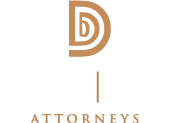A simple rear-end accident occurs when one vehicle collides with the vehicle in front of it. In most cases, the rear vehicle is deemed negligent and liable for damages.
Chain-reaction collisions involve three or more vehicles that hit each other in a sequence of rear-end collisions. For the middle car, this is referred to as a “double tap,” because you receive two impacts, one from behind and the other when you are pushed into the car in front of you. This is a very dangerous situation for the middle vehicle as it receives the most damage and may become sandwiched between the other vehicles. Serious permanent injuries can occur depending on the circumstances, severity of the collision and the speed of the rear vehicle. Tailgating and lack of driver attention are common causes of rear-end collisions and chain-reaction collisions.
In determining liability, the rear vehicle is almost always found negligent. Basically, if they didn’t hit you, then you wouldn’t have hit the car in front of you.
In some situations, a chain-reaction collision can be very complex, and there may be questions as to who is liable. Property damage is a major factor in determining liability. If there is more visible impact damage to the rear of your car, more than likely, you are not at fault. Witness observation and statements given by the driver of the first car are also important in determining liability and negligence.
A middle vehicle may be found partially liable if they contributed to the collision. This may happen if the tail lights or brake lights were not working or if there were mechanical problems causing it to be rear-ended.
Florida is a comparative-negligence state. This means that any party that was injured has the right to seek damages even if they were partially responsible. Any compensation awarded is offset depending on the degree of liability. For example, if you are found to be 25 percent liable, you will only receive 75 percent of the amount awarded to you.
Being in an accident can be a very traumatic experience, not only for the person injured, but their family as well. If you or a loved one were involved in a chain-reaction collision and have questions regarding the accident or as to liability, please contact us today.

